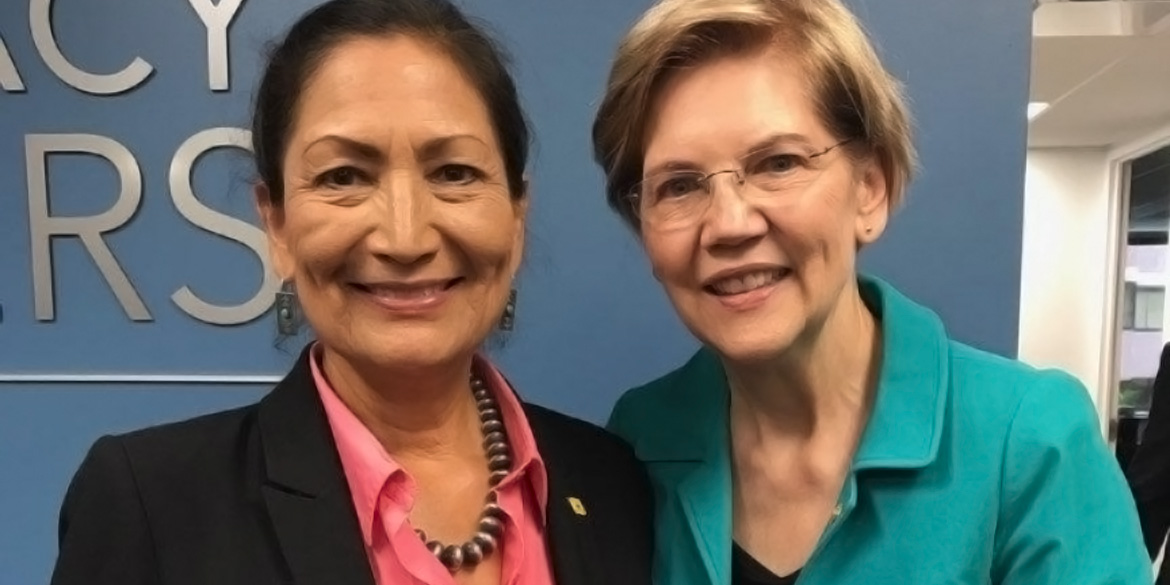A universal child care plan rolled out by U.S. Sen. Elizabeth Warren of Massachusetts, one of the roughly two dozen candidates seeking the Democratic nomination for president in 2020, has been praised as a “giant step forward.”
But critics, and even some supporters, say that while the federal legislation would make child care more affordable, it wouldn’t do enough to address another problem: a lack of child care capacity.
Warren announced her Universal Child Care and Early Learning Act in February, and she and U.S. Rep. Deb Haaland, D-N.M., introduced the bill in Congress on June 18.
The legislation would:
- Make child care free to any family that makes less than 200 percent of the federal poverty line. (Currently, 200 percent of the federal poverty level would be $51,500 for a family of four.) Above that, no family would be required to pay more than 7 percent of their income.
- Create a network of government-funded care centers based partly on the existing Head Start network, with employees paid comparably to public-school teachers.
- Cost an estimated $707 billion over 10 years. To pay for the program, and other proposals, Warren would use what she calls her Ultra-Millionaire Tax, which would put a 2 percent levy on wealth above the $50 million mark.
Two days after the bill was introduced, the Center for American Progress, a left-leaning think tank, released a report saying 60 percent of families are spending more than twice as much on child care as what the U.S. Department of Health and Human Services considers affordable. That group includes families who are earning less than 200 percent of the federal poverty level and spending 35 percent of their income—or $188 per week—on child care, according to the report.
In These Times, a nonprofit magazine that says it advocates for economic justice, calls Warren’s plan a giant step forward but says it doesn’t do enough to ensure there are enough child care providers, especially in low-income areas.
The Manhattan Institute, a conservative think tank, also says the subsidies will push more parents into choosing child care, putting more pressure on capacity.
Reaction to Warren’s proposal
| Publication/Organization | Critique |
| Zero to Three, babies and toddlers advocate | The bill “recognizes that all families, regardless of income, need support to access and afford high-quality child care and would help ensure that no family pays more than they can afford” and “acknowledges the importance of a highly-trained, qualified and diverse workforce by proposing training and educational supports, while ensuring that early childhood educators are paid at a rate.” |
| In These Times | “Compared to the status quo, Warren’s plan is a giant step forward. Unfortunately, it doesn’t go nearly as far as it should …Her plan will create increased demand for care but doesn’t do nearly enough to ensure that there are enough providers, particularly in underserved areas.” |
| Washington Post associate opinions editor | Warren’s plan could make child care harder to find Because it would “dramatically increase demand for an already-limited number of day-care slots, as out-of-home care suddenly becomes ‘free’ or much less expensive for millions of families.” |
| The New Republic | The proposal “would be a boon for parents—as long as they can gain access to childcare in the first place …There are simply not enough providers in operation. That demand is only likely to increase if Warren’s plan makes childcare far more affordable and better quality than it is today.” |
| Manhattan Institute, conservative think tank | “The sheer size of the benefit is such that it would nudge many parents who’d otherwise prefer to devote all of their time and energy to raising their children into the workforce.” |
| The Week | The subsidy being based on income “means there will be little incentive to compete on price. The result will very likely be child-care centers competing on expensive deluxe amenities, as parents will naturally be drawn to the fanciest options since they will pay the same regardless. Prices will rise as a result.” |
Chris Hayden, a spokesman for the Warren campaign, says the federal government would be able to partner with states, municipalities, school districts and nonprofits to increase child care capacity. If those partnerships still leave a desert, the federal government is authorized to create child care facilities on its own, he says.
Patricia Cole, senior director of federal policy at Zero to Three, which advocates for babies and toddlers, says she is “really encouraged” by the comprehensiveness of Warren’s plan. “It does really stimulate discussion of what is the system we want in this country,” she says.
Cole also sees the increased funding as likely ensuring that capacity meets demand.
“We’re certainly not going to do it by starving the system, which is what we’re doing now,” she says.
More on Warren’s plan and child care
Article: By Warren, on Medium: “My plan for Universal Child Care”
Video: Warren announcing her proposal on “The View”
Opinion: In The Atlantic: “The Trouble With Elizabeth Warren’s Child-Care Plan”
Article: PolitiFact: Elizabeth Warren: Does her wealth tax pay for her child care and higher education plans?
Article: Early Learning Nation: “Advocates for More Child Care Spending Push “Crisis” Report: White House and 2020 Presidential Candidates Weigh In”
Tom Kertscher
Milwaukee journalist Tom Kertscher was a 35-year newspaper reporter, finishing that career at the Milwaukee Journal Sentinel. Now a freelance writer, his work includes fact-checking for PolitiFact and sports reporting for the Associated Press. His reporting on Steven Avery was featured in Making a Murderer. Kertscher is the author of sports books on Brett Favre and Al McGuire. Follow him at TomKertscher.com and on Twitter: @KertscherNews and @KertscherSports.



